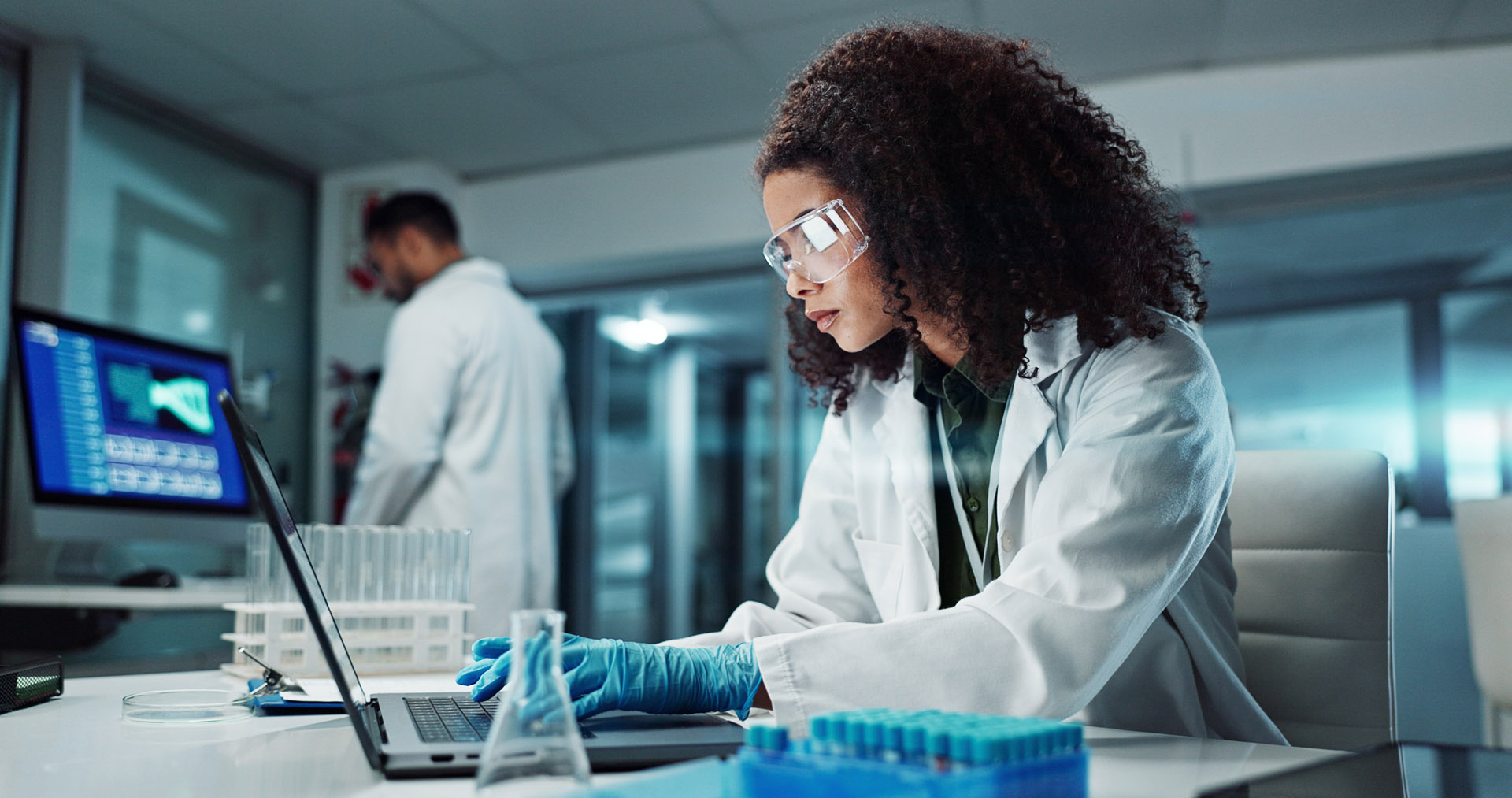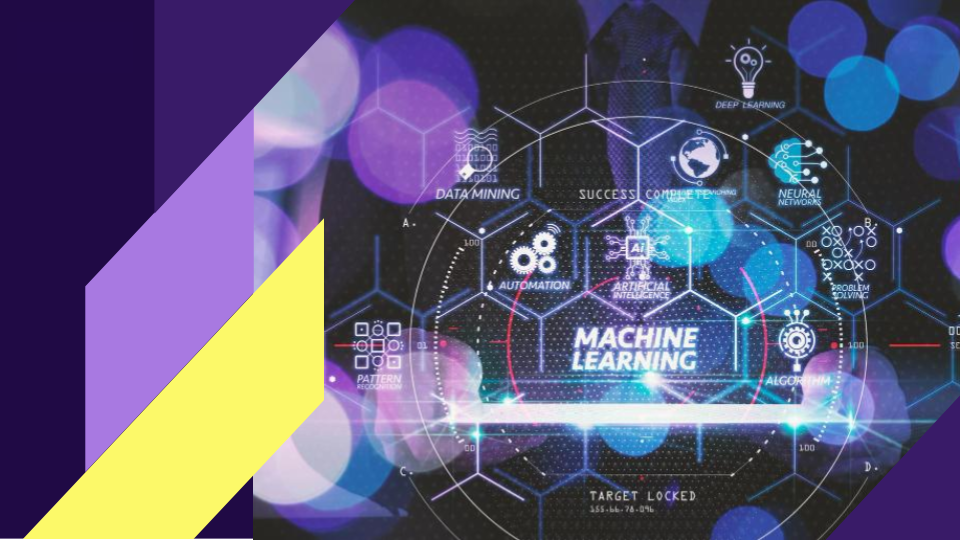AI & ML: Drug Discovery & Development
Boost your drug pipeline with AI hypothesis validation
Are you stuck in the lab with no help from the current AI revolution in drug discovery?
Artificial intelligence and machine learning are crucial for uncovering actionable insights that guide your research forward. Empower your drug discovery and development with customized AI & ML solutions designed to accelerate hypothesis generation and validation, ensuring consistent and reliable results, AI-driven drug research through machine learning in drug discovery.
Precision AI & ML solutions built around your research goals
In life sciences, every project requires a unique approach. At Ardigen, we begin by understanding the underlying science and the specific challenges you face. We then craft tailored AI & ML solutions to answer your research questions, be it target identification, property prediction, or biomedical image analysis, to fast-track innovation and deliver AI consulting biotech expertise, proving our capabilities as one of the leading machine learning biotech companies.
AI-powered drug
discovery
Harness the potential of AI to uncover and validate new hypotheses with precision. By transforming complex data into actionable insights, AI models drug discovery can tackle key challenges in computational drug design AI, target identification, off-target detection, toxicity analysis, and more, delivering comprehensive AI drug discovery solutions via ML.
Biomedical image
analysis
Advanced AI models turn imaging data from histology, microscopy, or radiology into meaningful biological insights, enabling deeper understanding of biological processes. Use deep learning drug discovery tools like computer vision, powered by neural networks, to help you analyze complex image data, turning pixels into discoveries for precision medicine ai.
Scalable AI and ML solutions
Struggling to keep up with the growing size and complexity of your datasets? With scalable ML Ops solutions, your AI models are automatically updated and optimized to keep pace with data generation, eliminating bottlenecks and allowing your research to move forward at full speed. his is core to developing an effective AI platform for drug discovery for ML for biotech companies.
Multimodal AI
predictions
Integrating multiple data types such as omics, clinical, or imaging data can vastly improve predictive outcomes in drug discovery. Multimodal AI solutions harness complementary information from multiple data sources, revealing causal relationships and enabling more accurate predictions.
Challenges solved:
- Finding meaningful insights in vast datasets.
- Reducing the time it takes to validate drug hypotheses.
Challenges solved:
- Extracting insights from multiple imaging modalities.
- Managing image quality and batch effects for reliable data.
Challenges solved:
- Automating model updates without losing previous results.
- Ensuring accessibility to non-ML experts across your organization.
Challenges solved:
- Integrating data from multiple modalities without losing key information.
- Enhancing prediction accuracy by processing complex, interconnected biological data.
Project impact:
- Faster hypothesis validation, reducing research timelines.
- Reliable, data-driven predictions that guide decision-making.
Project impact:
- Streamlined analysis of histology and microscopy data.
- Reduced noise and batch effects, ensuring more accurate conclusions.
Project impact:
- Scalable AI models that handle growing datasets efficiently.
- Democratized access, empowering all team members to benefit from AI tools, regardless of technical background.
Project impact:
- More powerful, integrated AI models that drive better predictions.
- A holistic view of research data, combining different insights into a unified solution
Connect with our team to explore how our AI & ML solutions can accelerate your drug discovery efforts.

AI technology behind smarter research
Optimized for life sciences
Our AI drug discovery solutions are designed specifically for drug discovery, biomedical imaging, and related fields, ensuring maximum relevance and impact for your research. establishing us among leading machine learning biotech companies.
Results-oriented
Every solution is crafted to accelerate progress, reduce research times, and deliver reliable, high-quality insights.
Innovation in AI & ML
By leveraging the latest advances in AI and ML, these custom AI development life sciences stay ahead of the curve, providing tools that adapt and scale with your research needs, demonstrating our commitment to cutting-edge Ml Solutions.
See the impact
Case studies
Frequently Asked Questions
What is the application of AI and ML in drug discovery?
AI and machine learning are applied across the entire drug discovery pipeline—from target identification and validation, to compound screening, lead optimization, biomarker discovery, and patient stratification. They help process large-scale datasets, uncover hidden patterns, and generate predictive models that accelerate and de-risk decision-making.
What are the AI tools used in drug discovery and development?
AI tools range from open-source frameworks (e.g. TensorFlow, PyTorch, scikit-learn, MCP) to domain-specific platforms for molecular generation (e.g. ReInvent, GenMol), image analysis (e.g. CellProfiler, AI, Foundational Models), and omics interpretation (e.g. PathML, Scanpy, RAPIDS). Many are integrated into custom pipelines that combine data preprocessing, model training, and visualization.
What is the role of AI in biomedical image analysis for research?
AI enables automated, high-throughput interpretation of biomedical images, such as cell morphology, histopathology, and microscopy data. It supports phenotypic screening, spatial omics, and tissue classification by detecting subtle patterns that may be missed by manual analysis, improving accuracy and reproducibility.
Can multimodal AI predictions improve drug discovery outcomes?
Yes. Multimodal AI integrates data from various sources—such as omics, imaging, clinical, and chemical data—to generate more holistic predictions about drug efficacy, toxicity, and mechanism of action. This improves confidence in decisions and supports the development of better-targeted therapies.
How is AI used in life sciences?
AI is used in life sciences to accelerate research, uncover biological mechanisms, and improve clinical outcomes. Applications span genomics, proteomics, diagnostics, drug discovery, epidemiology, and personalized medicine, with AI models helping to make sense of complex, noisy, and high-dimensional data data from our data universe.
What are the applications of deep learning in life sciences?
Deep learning enables applications such as protein structure prediction, drug–target interaction modeling, biomedical image segmentation, text mining from scientific literature, and prediction of gene regulatory networks. It is particularly useful when working with unstructured data like sequences, images, or free text.
Does Ardigen offer AI consulting for biotech companies?
Yes. Ardigen partners with biotech companies to deliver AI strategy, model development, data infrastructure, and scientific support tailored to their pipeline needs. This includes co-developing solutions for discovery, translational research, and clinical development.
This AI solutions is overseen by experts like Dawid Rymarczyk, PhD, Ardigen’s Director of AI Solutions. His expertise in deep learning and image analysis is crucial for developing these cutting-edge platforms.
See also:
Contact
Ready to transform drug discovery?
Leave us a message and we will reach out to you within 24 hours, to tell you more about how we can empower your drug development journey.
Newsletter
Become an insider
Be the first to know about Ardigen’s latest news and get access to our publications, webinars and more!

